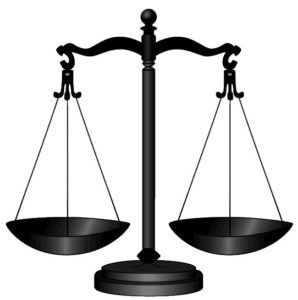Our American ancestors did not trust the federal government. That lack of trust is reflected first in the Constitution and then in the Bill of Rights.
While the Constitution called the federal government into existence, it strictly limited its powers to those enumerated in the document itself.
Further reflecting their lack of trust, the Bill of Rights, among other things, prohibited federal officials from punishing people without following certain judicial procedures. These procedural protections included trial by jury, due process of law, right to counsel, no forced confessions, right to confront witnesses, the right to be free from cruel and unusual punishments, and the right to a speedy trial.
If the Constitution had proposed a federal government that could punish people without following those restrictions, the American people would never have accepted the deal. The country would have continued operating under the Articles of Confederation, a type of governmental system in which the federal government had not even been given the power to tax.
For more than 200 years, the Constitutional federal judicial system prevailed. While there were the inevitable abuses of power, the federal government generally complied with those procedural restrictions, especially since the federal judiciary, by and large, enforced them.
All that changed with the 9/11 attacks. Seizing on the crisis, the Pentagon and the CIA constructed a separate judicial system in Cuba with the express purpose of avoiding the procedural protections in the Bill of Rights. They said that their system would be limited to criminal prosecutions involving terrorism.
Central to the Pentagon’s and CIA’s system was the abrogation of the Bill of the Rights, specifically the Fourth, Fifth, Sixth, and Eighth Amendments to the Constitution. No more right of trial by jury. Coerced confessions would be permitted. The accused could be subjected to torture, even before conviction. No right to speedy trial. No right to confront witnesses. No right to due process of law.
It was the first time in U.S. history that the federal government was authorized to avoid the constraints that our ancestors had imposed on federal officials.
The justification given was that the United States was facing a terrorist crisis and, therefore, the Pentagon and the CIA had no choice but to adopt this anti-constitutional system in order to keep America “safe” and “secure” from the terrorists.
Yet, the Constitution did not provide for any exceptions to the Bill of Rights. There was no exception provided for crises. There was no exception provided for “safety” and “security.”
Needless to say, the Pentagon and the CIA never sought a constitutional amendment, or even congressional authorization, to authorize this revolutionary change in America’s constitutional judicial system.
Our ancestors understood that the procedural protections in the Bill of Rights are a necessary prerequisite for a free society. The Pentagon and the CIA destroyed what our ancestors bought into existence, at least in cases involving accused terrorists.
Why did so many Americans accept the destruction of their liberty in such a passive way? Fear. Throughout history, fear has motivated people to trade their liberty for the promise of safety or security. They always think it’s going to be temporary but it never is. And they ultimately find out that they have lost both liberty and security at the hands of their own government.
What is needed to regain our liberty? The conquest of fear, a deep commitment to liberty, and the same lack of trust in federal power as our ancestors had.


